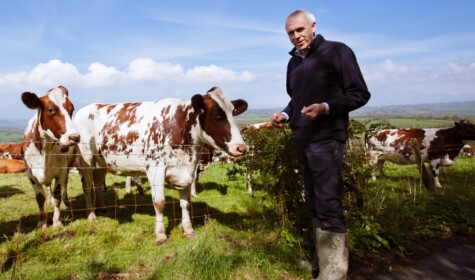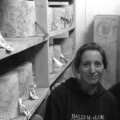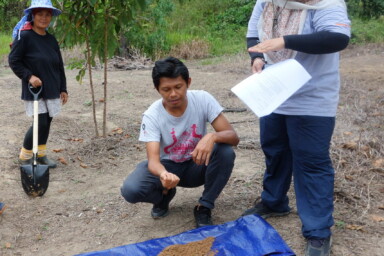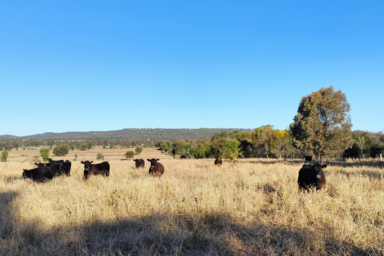SFT CEO Patrick Holden and his wife Becky Holden farm 300 acres in West Wales and produce a raw milk cheddar called Hafod with the milk from their herd of Ayrshire cows. Here, Becky reflects on the thriving biodiversity on their hill farm and the interconnectedness of the farm and nature.
This year, the 18th of June marked half a century since Patrick arrived at Bwlchwernen. It’s been 50 years of seasons, cycles and interactions between plants, animals and people on our small magical hill in West Wales. There was much for him to reflect upon on that day, and as he found himself working in the copse behind our threshing barn amidst the birdsong, he started to tune in to the unexpected and extraordinary repertoire of what he thought might be a nightingale. In West Wales, that would be a rare thing indeed – in 2020 news of a nightingale song heard in Machynlleth made it into the County Times! Nightingales are generally found in broadleaved woodlands, south of a line drawn between the Humber and the Severn. The warm dry spring we’ve experienced this year may be attracting these birds, found commonly in Mediterranean countries – but we can also dare to hope that the varied habitat and abundant insect life on our farm is a factor.
The 50 years of farming at Bwlchwernen, according to the interconnected principles of health, ecology and a circular economy, have not only stewarded the farm’s natural biodiversity as a complete and thriving ecosystem, but also created the conditions to increase and improve its biodiversity potential. Our farming is based on the interdependence of all life on the farm, from the bacteria, fungi and microorganisms in the soil, right through to the nuisance flies, tail-swishing cows and thriving swallow and bat populations that feed on those flies.











